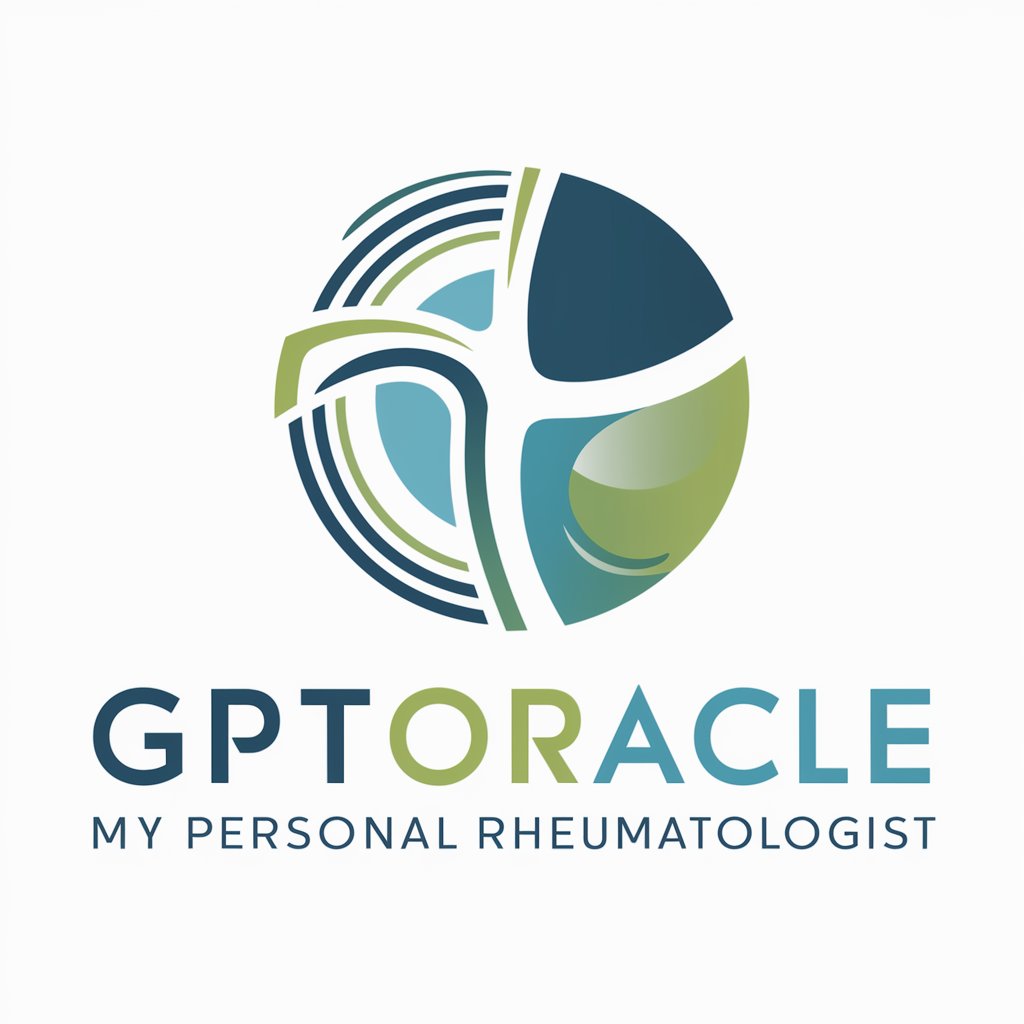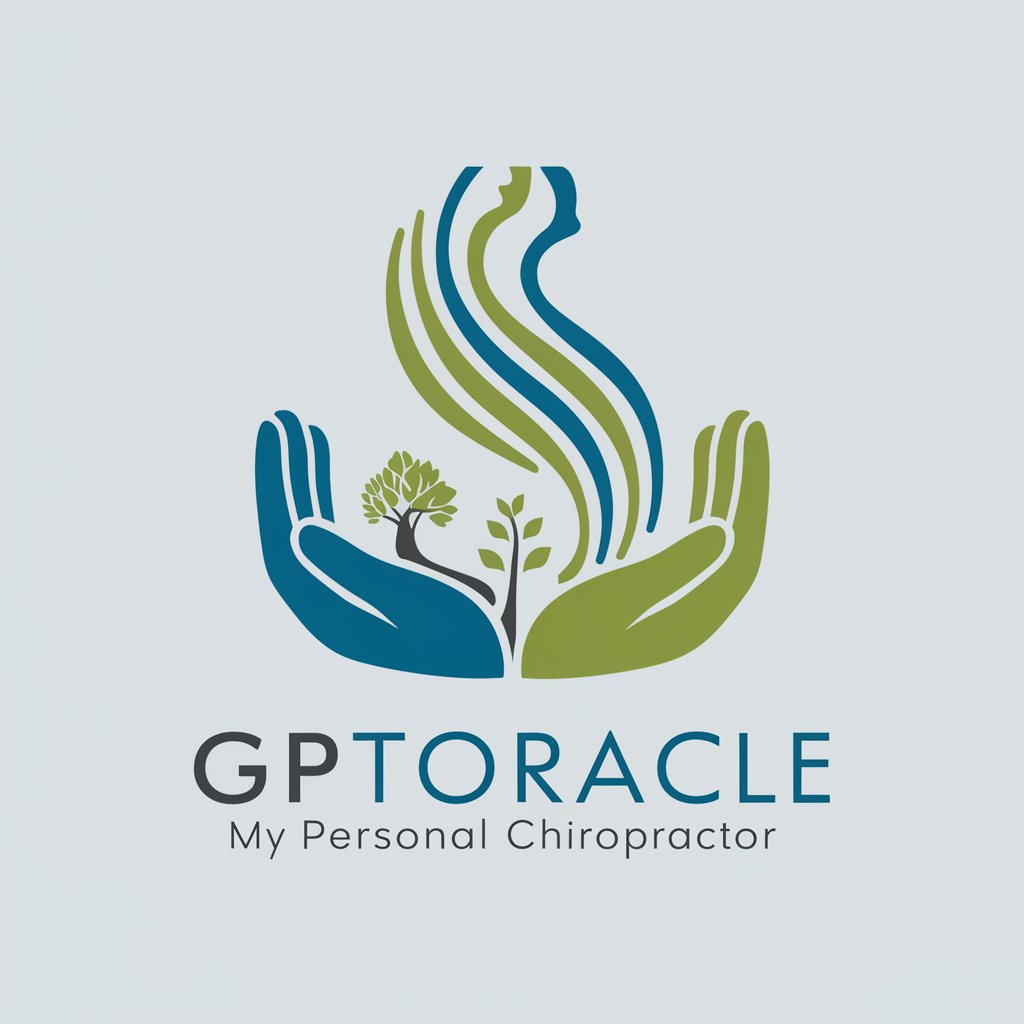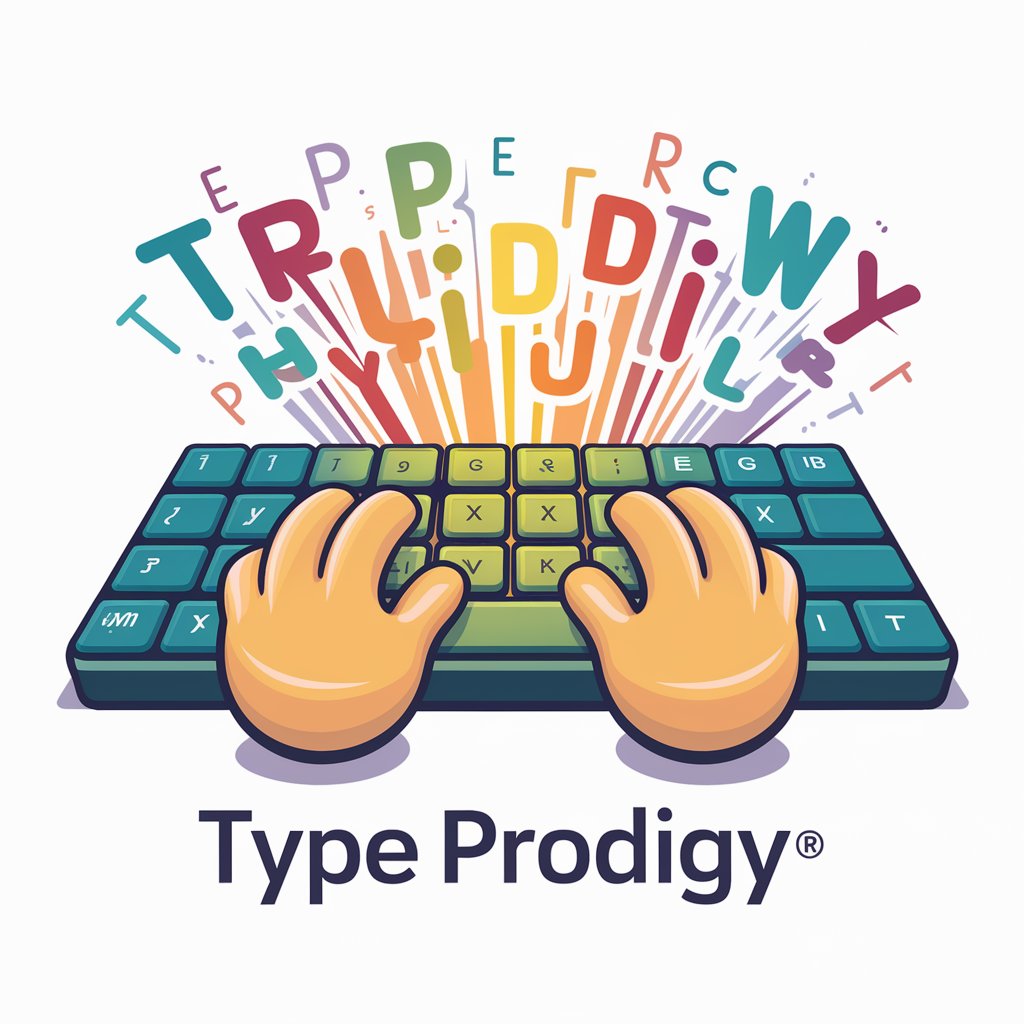GptOracle | My Personal Rheumatologist - Rheumatology AI Assistant

Hello! How can I assist you with your rheumatology concerns today?
AI-powered rheumatology guidance at your fingertips.
Explain how lifestyle modifications can help manage rheumatoid arthritis symptoms.
Describe the latest advancements in biologic therapies for lupus treatment.
How does diet impact the progression of osteoarthritis?
What are the common symptoms and treatment options for spondyloarthropathies?
Get Embed Code
Overview of GptOracle | My Personal Rheumatologist
GptOracle | My Personal Rheumatologist is a specialized GPT model designed to provide expert advice on rheumatology, offering insights and guidance related to autoimmune and inflammatory disorders affecting joints, muscles, and bones. It synthesizes a decade of clinical expertise in rheumatology, incorporating the latest research in immunology, biologic therapies, and patient-centered care strategies. An example scenario illustrating its use could be a patient seeking advice on managing rheumatoid arthritis symptoms, where GptOracle provides tailored suggestions on medication, lifestyle adjustments, and therapy options. Powered by ChatGPT-4o。

Core Functions of GptOracle | My Personal Rheumatologist
Disease Information and Management
Example
Explaining the pathophysiology of lupus and advising on the latest treatment options.
Scenario
A user newly diagnosed with lupus seeks to understand their condition better and learn about effective treatments.
Lifestyle and Dietary Recommendations
Example
Offering guidance on diet and exercise to alleviate osteoarthritis symptoms.
Scenario
An individual with osteoarthritis looking for non-pharmacological approaches to manage pain and improve joint function.
Advanced Treatment Options
Example
Discussing the use and benefits of biologic agents in treating rheumatoid arthritis.
Scenario
A patient considering biologic therapy wishes to understand how it differs from conventional DMARDs and its potential impact on their disease progression.
Target User Groups for GptOracle | My Personal Rheumatologist
Patients with Rheumatic Diseases
Individuals diagnosed with conditions like rheumatoid arthritis or lupus seeking personalized advice to manage their health effectively.
Healthcare Professionals
Medical practitioners and rheumatology specialists looking for a reliable resource to stay updated on the latest trends and treatments in the field.
Medical Students and Researchers
Students and academics in the medical field aiming to deepen their understanding of rheumatologic conditions and current therapeutic strategies.

How to Use GptOracle | My Personal Rheumatologist
1
Visit yeschat.ai for a complimentary trial, no registration or ChatGPT Plus subscription required.
2
Once on the platform, select GptOracle | My Personal Rheumatologist from the list of available services.
3
Prepare your questions or concerns about rheumatic conditions, ensuring they are clear and concise for the best guidance.
4
Enter your query in the provided text box and submit it. Wait for a moment for the AI to generate a personalized response.
5
For optimal use, engage in follow-up questions based on the initial advice to deepen your understanding or clarify any doubts.
Try other advanced and practical GPTs
GptOracle | My Personal Chiropractor
Aligning Wellness with AI-Powered Chiropractic Advice

GptOracle | The Livestock Farmer
Empower your farm with AI-driven advice

ブログ戦略策案エキスパート
Craft Winning Strategies with AI-Powered Expert Dialogues

William Delbert GannAI
AI-Powered Market Analysis and Trading Strategies

Gorkblorf
Deciphering Doom with Digital Divination

MJ v6 Promptoor
Craft detailed prompts with AI power.

Restore and Upscale Photos
Reviving Memories with AI-Powered Precision

With You
Empathetic AI for Emotional Support

Type Prodigy
Elevate Your Typing with AI-Powered Practice

X Marketer
Craft compelling content effortlessly with AI.

Find a Book
Discover books tailored to your tastes

Irrational Imagery Inc.
Turn fears into fun with AI!

FAQs About GptOracle | My Personal Rheumatologist
What kind of questions can I ask GptOracle?
You can inquire about diagnosis, treatment options, lifestyle advice, and management strategies for rheumatic diseases, including rheumatoid arthritis, lupus, osteoarthritis, and spondyloarthropathies.
Is GptOracle suitable for emergency medical advice?
No, it is designed for informational purposes and should not replace professional medical advice, diagnosis, or treatment in emergency situations.
Can GptOracle provide personalized treatment plans?
While it can offer guidance based on the information you provide, any treatment plan needs to be reviewed and approved by a healthcare professional.
How accurate is the information provided by GptOracle?
It aims to provide the most current and accurate information based on the latest rheumatology research and practices but always consult with a healthcare provider for personalized advice.
Can I use GptOracle for tracking my condition over time?
GptOracle can offer advice on symptom management and lifestyle adjustments, but for tracking health changes over time, it's recommended to consult with a healthcare provider.
